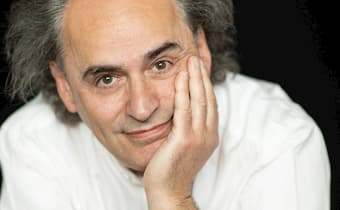
© Chan / La Scena Musicale
Canadian Composer Jaap Nico Hamburger has had a unique career. A well-regarded cardiologist he is now a full-time composer, currently the Composer in Residence with Mécénat Musica in Montréal, where he lives with his wife and five children. Recently I had a chance to interview him on zoom. A Dutchman who grew up in Amsterdam, he is a child of Holocaust survivors. His newly released recording is heavily influenced by his background.
JH: Jaap tell us how you became a full-time composer after a decades-long career in cardiology?
JAAP: My mother! Honestly! She passed away at age 95, in 2016 but before that she came to Vancouver once a year. During her visit, when she was already in her 90s she told me, “enough is enough! Stop your medical practice and focus on your music, what you were born for!” So that’s what I did. I said goodbye to friends and to my patients in BC as a cardiologist. My colleagues thought I was crazy to give up a career like that. I simply announced the date, jumping off the cliff you might say.
JH: So you were first drawn to music as a career?
JAAP: The true story is: I started music seriously at the age of three. When I finished high school, I was accepted to the Royal Sweelinck Academy of Music in Amsterdam, The Netherlands, to become a concert pianist. “That’s fine” my mother said. “You can play as much music as you want! But you will go to medical school as well to become a doctor!” In order to keep everybody happy that same year I was admitted to the medical school and did both.
After graduating, I balanced the two careers for a time—as a concert pianist and a doctor. In 1993, when I was scheduled to go on a recital tour of the US, Europe, and Israel, I was offered the position of director of laser physics research at the University of Erasmus in Rotterdam, and to pursue my career as an interventional cardiologist. I couldn’t take the job and go on tour! Dramatically I closed the piano lid for good and never went back on stage. Still a musician at heart, I made the transition to writing music after my day job as a doctor, composing at night.
The Internationally known group in Rotterdam sent me all over the world. Then I received an offer I couldn’t refuse—a clinical professorship in cardiology at The University of British Columbia. In August 2000, I emigrated to Vancouver, Canada and for 18 years I practiced there.
For me, as a Dutchman, it was the opportunity to give back to the people who at the end of WWII had liberated my country and my parents from the Nazis. You see, the Canadians liberated The Netherlands after World War II, and had they not done so, I would never have been born.
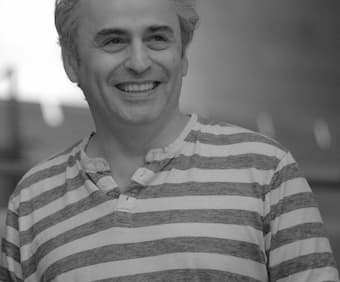
© Leaf Music
JH: What works did you compose during those years?
JAAP: Initially composing was my private outlet until mid-2018. Before that I received some commissions. In 2006, I was asked to write a new work for Vancouver’s Turning Point Ensemble: a 16-member group dedicated to the music written in the last 100 years.
JH: When did you first begin to express the haunting issues of your past?
JAAP: At the time of the commission, I read of Hungarian born composer György Ligeti’s passing, one of the most important avant-garde composers of contemporary classical music. The news made me read up on his biography and it inspired me to capture my understanding of his life’s story in a musical format. At the start of the WWII, Ligeti was a teenager and, as was the case for so many other survivors, his war experiences were quite unfathomable. He witnessed the execution of his father and brother. Equally impressive to me, is that his challenges did not come to an end with the liberation in May of 1945. After the war, due to artistic suppression by the Communist regime, Ligeti fled Hungary in 1956 escaping in a mail bag. Throughout his life, he responded to challenges with resourcefulness, strength, courage, and an unbelievable ability to create. The title Remember to Forget, my first chamber symphony is a reference to a sentence from the Old Testament from which we learn that doubt (“I should have,” “I could have,”) is self-destructive. Being critical of oneself is required for growth but we’re not necessarily in control of the outcome of events. Nonetheless we must give our very best, every day, under all circumstances.
Jaap Nico Hamburger: Chamber Symphony No. 1, Op. 9, “Remember to Forget” – II. Vivace (Ensemble Caprice; Matthias Maute, cond.)
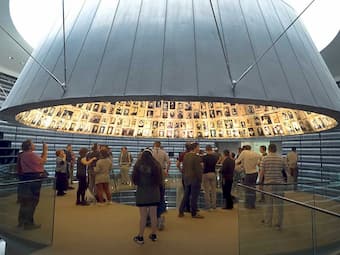
Yad Vashem, The World Holocaust Remembrance Center
© Barbara Ann Weibel
JH: Your Chamber Symphonies Nos. 1 and 2 were released on disc by Leaf Music November 6, 2020. Tell us about your second symphony.
JAAP: Children’s War Diaries was inspired by the diaries of five teenagers who were murdered during the Second World War, from the book by Jakob Boas. (English title We are Witness.) Sometime after reading these diaries, I visited Yad Vashem— The World Holocaust Remembrance Center in Jerusalem. The architecture of the Children’s Memorial, in an underground cavern, memorializes the 1.5 million children murdered in the war—approximately 95% of all Jewish children ages 0-18 in occupied Europe. Seeing this memorial was one of the darkest moments in my life. When I walked out into the bright sunshine with the vista of Jerusalem’s Old City before me, overcome, I went home and wrote the entire score down, the inspiration a combination of the diaries and the overwhelming visceral and visual experience in Yad Vashem.
Jaap Nico Hamburger: Chamber Symphony No. 2, “Children’s War Diaries” – IV. May 1944 (Montréal Symphony Orchestra; Vincent de Kort, cond.)
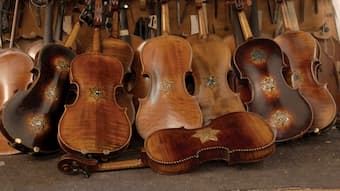
Violins originally owned by Jewish musicians who perished during the Holocaust are restored in the Violins of Hope project © Violins of Hope / The Soraya
JH: The recording is unique. When did you learn of the Violins of Hope project? Our readers may not know of luthier Amnon Weinstein whose life’s work has been to restore the violins originally owned by Jewish musicians who perished during the Holocaust. The instruments survived the concentration camps and have become a symbol of hope. I had the privilege of participating in one of these inspiring programs.
JAAP: I learned of Amnon Weinstein’s work through the book by James Grymes, Violins of Hope. In early 2019, I was contacted by the Montreal Holocaust Museum and Katia Dahan of Concept Duo. They planned a Violins of Hope program in celebration of the 75th anniversary of the Canadian Armed Forces’ liberation of the Netherlands and invited me to be the musical director of the program. The world-renowned l’Orchestre Métropolitain de Montréal performed on those very instruments—the Violins of Hope instruments, under the baton of Dutch conductor Vincent de Kort. Several superstar musicians appeared as well. The sold-out concert was an extremely moving experience.
JH: I understand some of your other works have been recorded as well. Do they have similar subject matter?
JAAP: Other than these two works, my music does not specifically concern itself with the topic of the Holocaust. In that respect, these two works are more the exception than the rule. My piano concerto was recorded with the Orchestre Métropolitain de Montréal and pianist Assaff Weisman, released July 2020.
Jaap Nico Hamburger: Piano Concerto – II. Molto Allegro (Assaff Weisman, piano; Orchestre Métropolitain; Vincent de Kort, cond.)
JH: Which other composers were major inspirations in your life?
JAAP: My parents were not musicians and although my three siblings and I studied music, they weren’t intensely drawn to music as I was. I can recall three major formative experiences in my musical life. Our parents owned Beethoven’s 9th Symphony on 78 vinyl records. One of my earliest memories is of my utter fascination with the piece, sitting in the basement studying it by heart. I could actually read music before I read language.
Three years later friends of the family took me to Amsterdam’s famed Concertgebouw where I heard Bruckner’s 8th Symphony under the helm of Bernard Haitink. It simply blew me away. The final pivotal moment I would say was when I heard Mahler’s 5th Symphony for the first time at the age of 12 or 13. I’ve been ‘hooked’ on music ever since. I love other composers too of course, and I eat scores for breakfast, but I clearly remember thinking, “this is the truth” these are the giants.
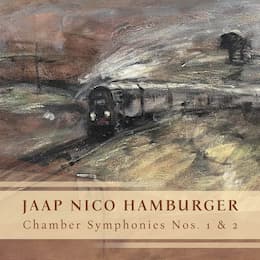
Jaap Nico Hamburger ‘s Chamber Symphonies Nos. 1 and 2 were released on disc in November, 2020
JH: You have another wonderful story about how serendipity played a part in opening doors for you in music.
JAAP: When I was winding down my practice, I composed my first opera Goldwasser inspired by a Dutch novel about a daughter coming of age in an Orthodox Jewish family. Somebody, knew somebody, and in December of 2017 I received an invitation to come to New York. A small company said they wanted to do the world premiere of this work. While there I had the opportunity to meet Barry and Joan Tucker. Perhaps you know that Carnegie Hall holds an annual award and gala concert in honor of the great American tenor Richard Tucker. They sat me down and told me they thought I was either psychotic or extremely naïve. “Your first opera and you imagine a world premiere in New York? Nobody knows you, nobody has heard your music. It’s not going to happen!” Barry confessed that he loves Mozart, Verdi, Puccini, but hates contemporary music. In the end, he did ask me to send a recording of my music with the caveat that the odds of working together, in his estimation was zero.
Several months went by. Then in May, Barry called to tell me he’d just listened to my disc. Not only did he love my music. He wanted to have it performed with Metropolitan Opera stars in New York. Just as I jumped off a cliff with no idea how I’d proceed with a life in music, this fell into my lap. Goldwasser is expected to premier in New York during the 2021-22 season.
JH: Your parents were Holocaust survivors, like my parents. Do you know their story?
JAAP: My parents were first in hiding, but someone betrayed them. Following their deportation, they survived multiple concentration camps, including the death camp Auschwitz-Birkenau. In 1945, they were liberated by Allied Forces, my father from another horrific concentration camp, Buchenwald.
JH: How much of your parents’ story did you know growing up? My parents never spoke about their experiences.
JAAP: Shortly after the war, my stepfather wrote a report of his experiences that I only found and read after his passing. My mother shared a bit more. But from conversations with my parents and from conversations with other survivors – I knew they would never speak of their most painful memories. These experiences must defy description or are simply too painful to re-experience when remembered and/or shared with others. My mother and stepfather after what they suffered became unbeatable, fearless. But still they had horrific nightmares.
JH: As a professional musician, as a concert pianist did you explore the music written during the Holocaust?
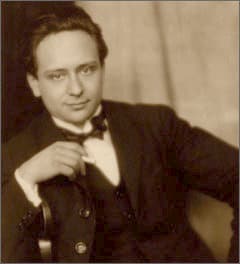
Viktor Ullmann © Wikipedia
JAAP: While I was still living in Amsterdam I formed an organization to trace manuscripts from forgotten composers of the era, to bring these works back to the concert hall. We travelled all over Europe and discovered several scores all musically fascinating from the 30s and 40s.
My last public performance featured music from Terezin concentration camp, of composers who perished. It included the Dutch premier of one of Viktor Ullmann’s piano sonatas dedicated to a young girl, a pianist, who survived Terezin and who subsequently moved to Israel. I was able to meet her—a grand old lady by then—to talk about Ullmann. He’d made significant contributions to both Czechoslovakian and German cultural life as a composer, conductor, pianist, and music critic, and he firmly believed in the role of art as central to the human spirit and to ethical development. Ullmann wrote 23 works while enslaved at Terezin concentration camp. I also found and copied the manuscript of one of Irwin Schulhoff’s piano sonatas in Switzerland, so this work was on the program, another Dutch premier, and a piece by Gideon Klein, all names we should know in the world of music.
Viktor Ullmann: Piano Sonata No. 7 – V. Variationen und Fugue über ein hebräisches Volkslied (Moritz Ernst, piano)
Erwin Schulhoff: Piano Sonata No. 2 – II. Allegro giocoso (Caroline Weichert, piano)
JH: I had the opportunity to perform Schulhoff’s Five Pieces for String Quartet: a wonderful and profound piece, and sections of his Piano Sonata No. 2 are quite light-hearted.
JAAP: Yes, a truly great composer.
JH: Tell us about your upcoming compositions.
JAAP: I recently completed a viola concerto. Coming up soon is the world premiere of three songs which I originally wrote for the Jerusalem Baroque, sadly, cancelled due to Covid. The Montreal Symphony will be premiering the work with Canadian soprano soloist Measha Brueggergosman. The poetry written by Elsa Lasker-Schüler, a German-Jewish poet and playwright affiliated with the Expressionist movement, had also to escape from Nazi Germany. I’m working on a commission from the Dutch Government and the United Nations: a new concerto for harp and orchestra, which will be premiered by Lavinia Meijer and the Royal Concertgebouw Orchestra in 2021. We are now in pre-production with Leaf Music to record several of my chamber works including a piano quartet, and of my first opera Goldwasser.
JH: You said something beautiful about composing, and I wonder if you’d like to leave our readers with that sentiment.
JAPP: When I sit at night and the world is quiet it’s as if a door opens. I’m given something precious and I write the music down. I believe we are all connected and we are all connected to each other, and through our hearts music can be the conduit to do that best.
For more of the best in classical music, sign up to our E-Newsletter

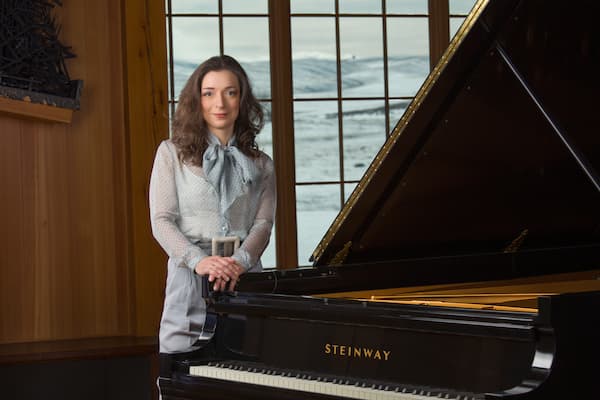
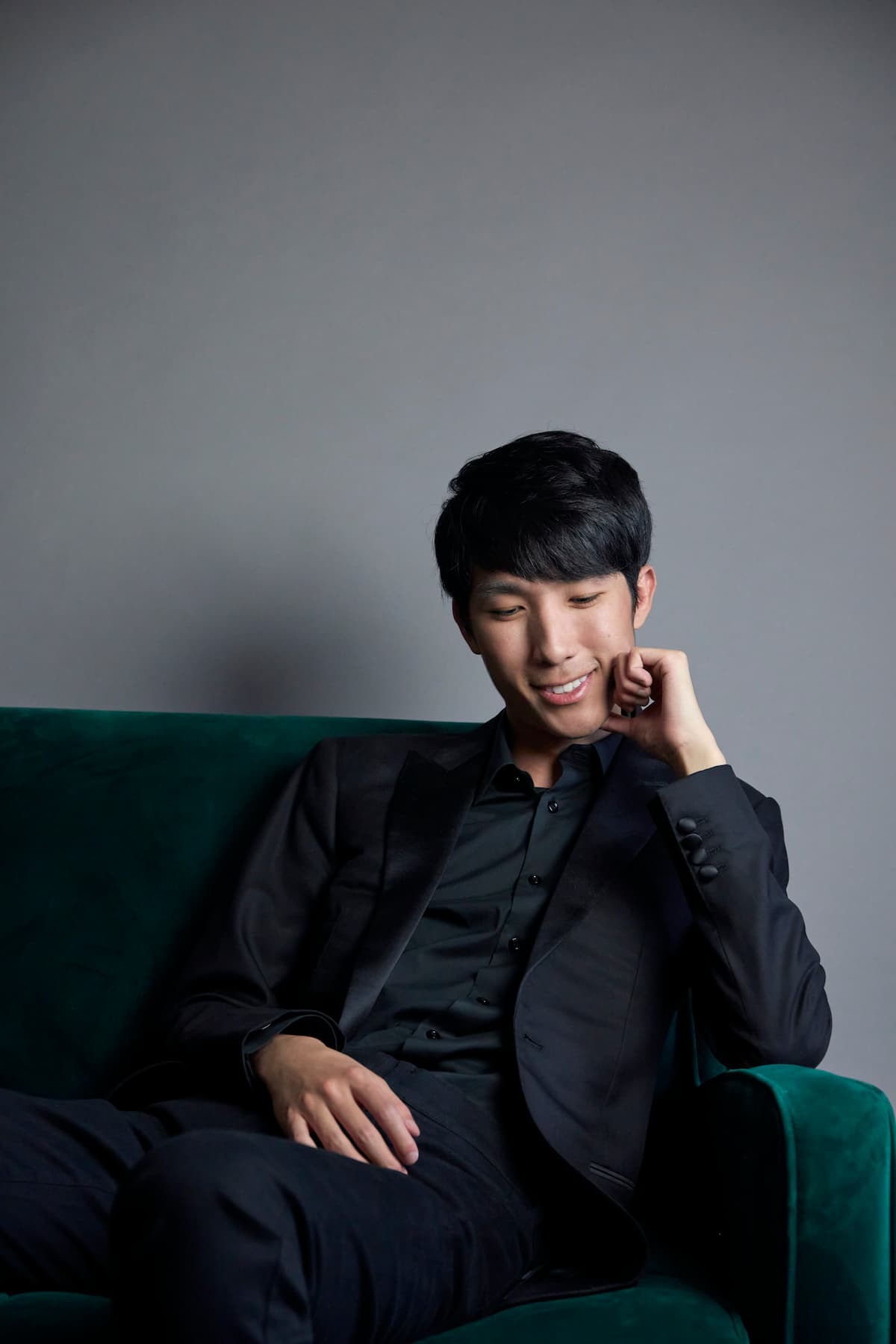
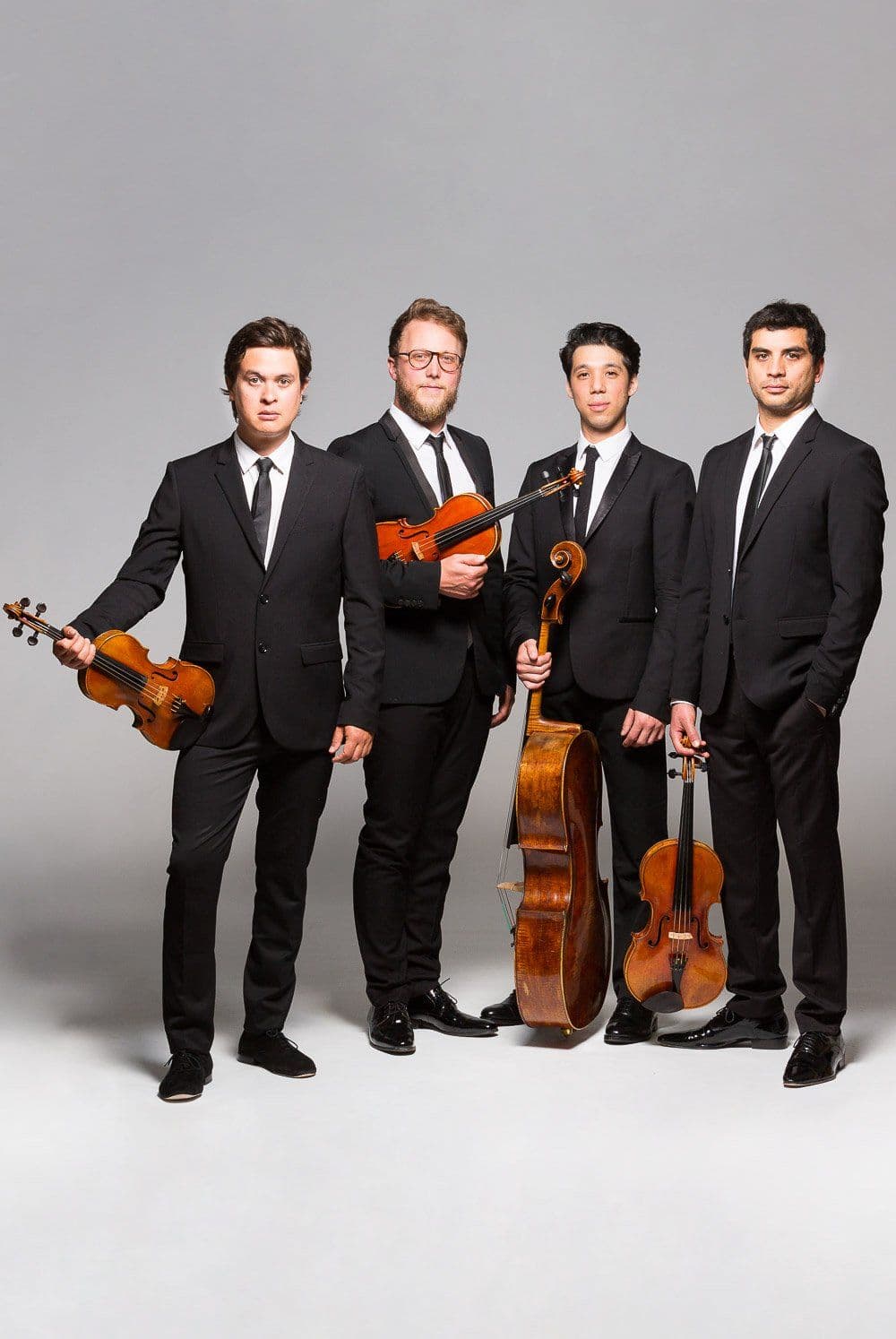
thank you very much for publishing this. I am deeply impressed. I know Jaap for a very long time.
I send him my love and wish him all the inspiration of the world.
The music is wonderful.
Mrs. Oostveen.
We appreciate you writing to us so much. Jaap is truly an impressive human being and one to emulate .
Thank you
Janet Horvath
I want to second my mother, Selly Oostveen, and thank you for sharing Jaap’s incredible story with us. Jaap, I remember you from when I was a little girl, I’m Leonie Evers. I live not far from you, in Portland, OR. My cheeks are soaked in tears after reading this piece. The work you do moves me to my core. You are bringing so much healing, both to the living and the dead. I know they hear your music too. You are their channel and their voice. And I know that is only possible because you allow yourself to be a vessel for their grief too. And their grief, of course, is our grief. Thank you. I am deeply grateful and moved beyond words. Much love, Leonie Evers
Dear Leonie,
Thank you for your very touching words. How wonderful to hear from you, so many years later…Looking forward to a possibility to reconnect. Be well.
Dear Jaap, yes… so many years later! It would be wonderful to connect whenever that feels right. I’ve always wanted to be able to connect with someone who lives on this side of the world but is from my hometown/community/our shared history. I am writing a memoir about growing up 2G in Amsterdam and my personal journey with this history. I’m just finishing a piece called: “Resonance – A Tribute to the Mystic of the Holocaust” (about Etty Hillesum), in which Selly features in a big way! I also made a small video about what we can learn from our ancestors for our times, which happened to come out this last 4 May on the day of Liberation! (70 years later). Happy to share with you if you would like that – no pressure of course. Let me know and I’ll ask Selly to give you my email address via FB Messenger. Much warmth to you and your family, Leonie
Dear Selly,
Thank you for your wonderful words. Hope all is well with you and your family. Stay safe and healthy….
Thank you for your moving comments and for reading our interview. I will make certain Jaap receives this and send you warm greetings. Yes these stories and channeling lost voices is exceedingly important.
Best
Janet Horvath